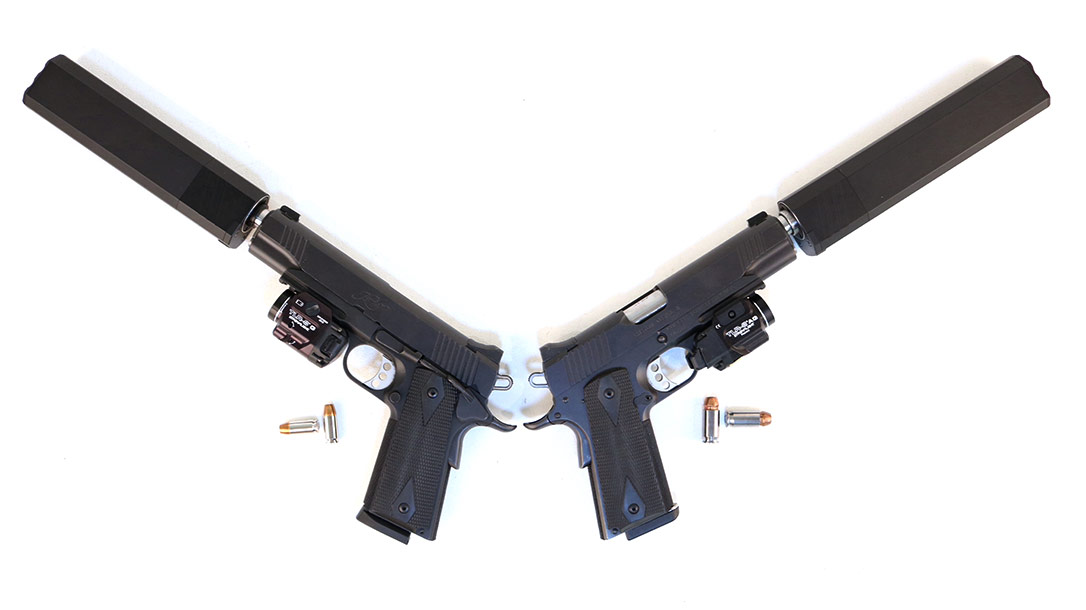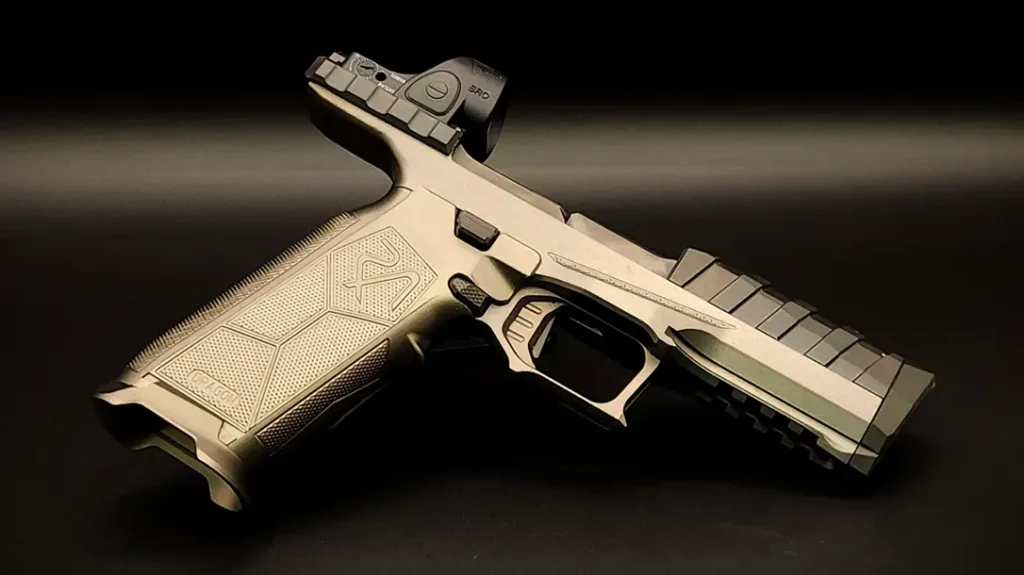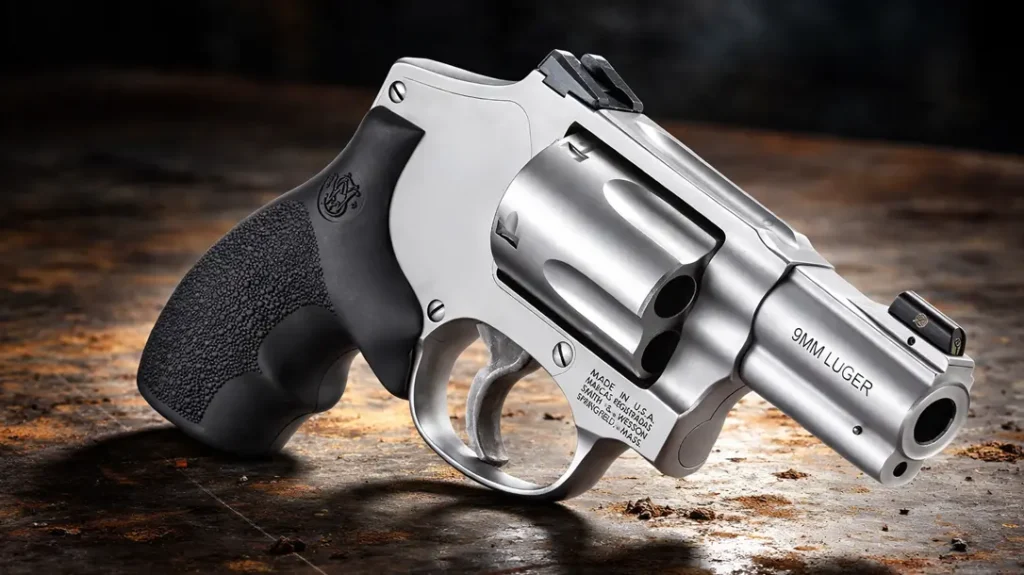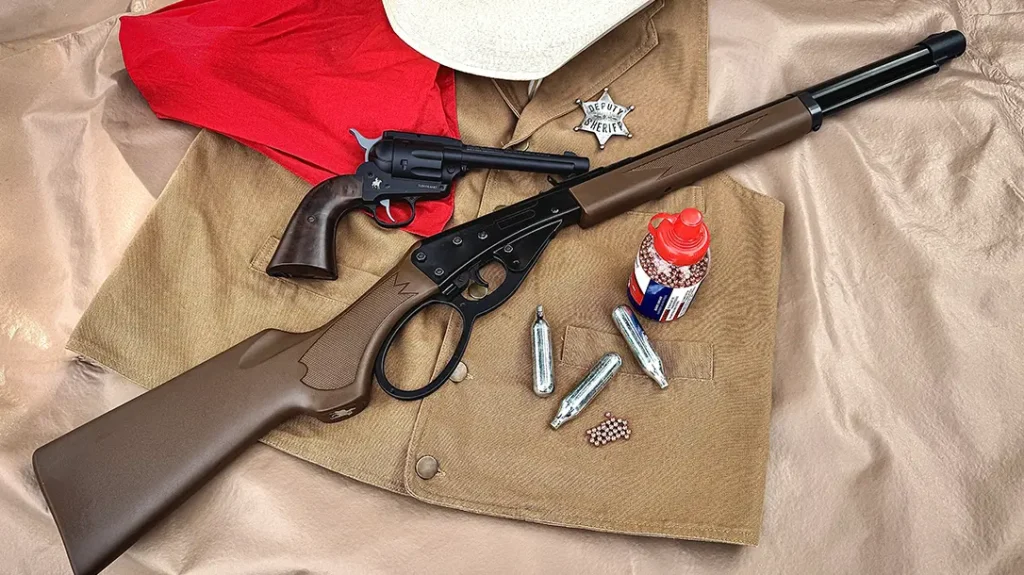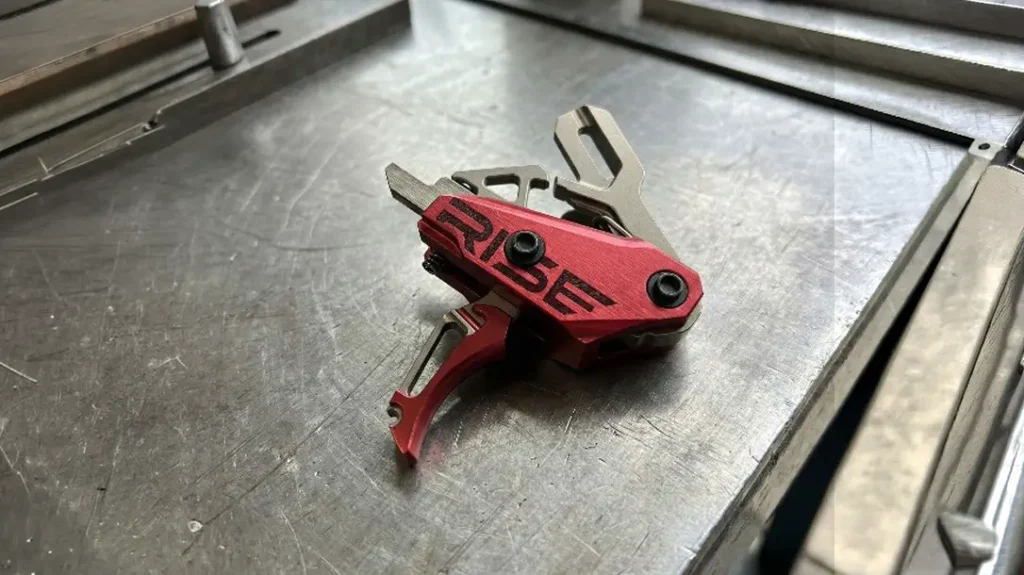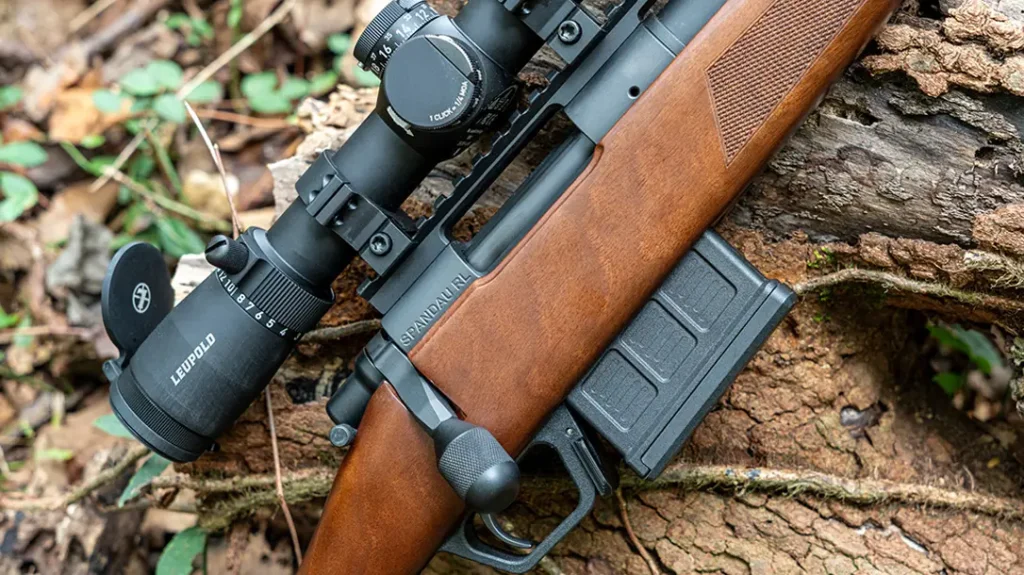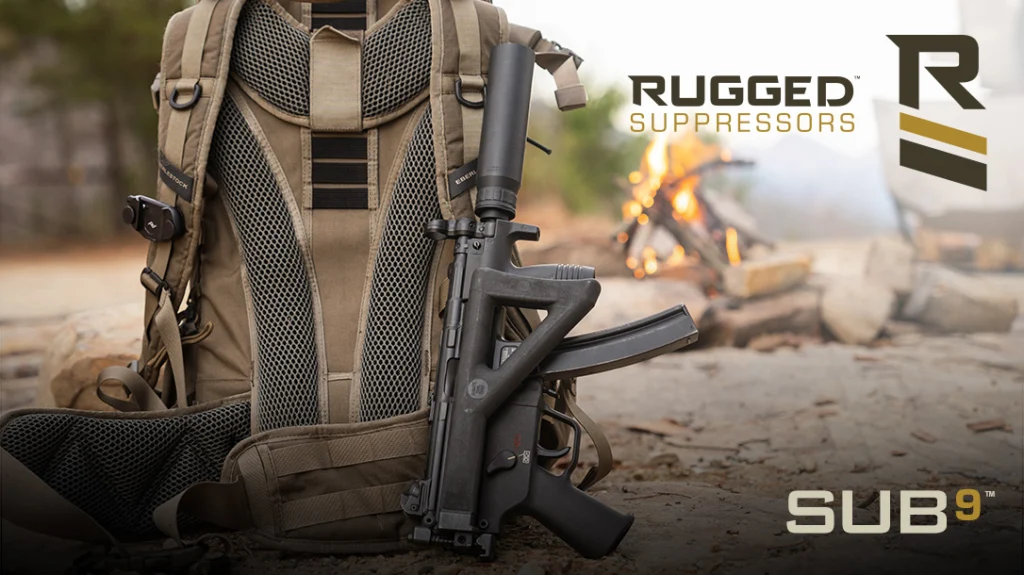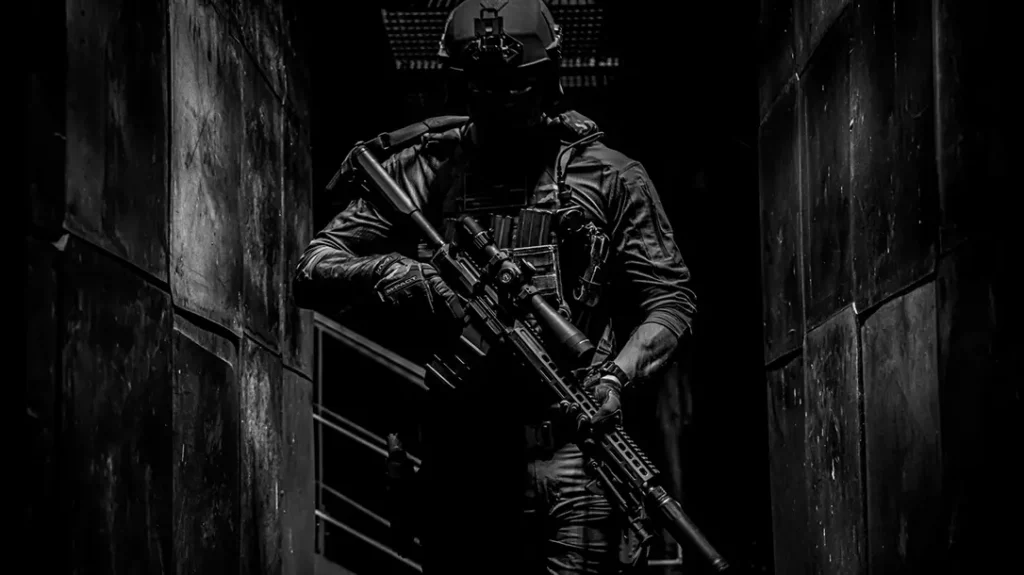For well over a century, John Moses Browning’s extraordinary M1911 pistol has captivated shooters around the globe. Despite its advanced age, this combat-proven warhorse remains in series production both at home and abroad. Offerings range from mass-produced utility guns to hand-built martial objets d’art with everything in between. Kimber has a well-earned reputation for producing reliably superb M1911 pistols in a wide variety of guises. So, we took two, fitted each one with a SilencerCo Osprey suppressor, and pitted them against each other.
Equipping 1911s with the SilencerCo Osprey
The 10mm Auto is considered a counter-bear cartridge in some climes, and the .40 S&W seems to have already had its day in the sun. .22LR is for recreation, while the .380 ACP will do the job but only just.
The only two really serious players in the pantheon of today’s defensive handgun cartridges are the .45 ACP and 9mm.
Advertisement — Continue Reading Below
When I had an opportunity to roll around in the dirt with Kimber 1911 TLE/RL II (TFS) pistols equipped with matching SilencerCo Osprey sound suppressors chambered in 9mm and .45 ACP earlier this year, I thought I’d won the lottery.

Given that golden opportunity, it seemed a neat excuse to compare and contrast these otherwise identical systems in these two disparate calibers.
Advertisement — Continue Reading Below
The Tactical Twins
The Kimber TLE/RL II TFS (Tactical Law Enforcement/Railed Threaded for Suppression) is an epically beautiful handgun. Thirty lines-per-inch checkering on the frontstrap and mainspring housing ensures a firm grip without unduly abrading your sensitive flesh. In addition, the stainless-steel match-grade barrel mates with a match-grade bushing, all atop a full-length guide rod.
Suppressor-height, three-dot night sights are elevated to accommodate the can. Likewise, the rear sight features a cocking shoulder so you can charge the weapon one-handed should life go truly pear-shaped.

Advertisement — Continue Reading Below
Textured G-10 grips look cool and work great. The inimitable single-action aluminum trigger is tuned at the factory to break reliably and beautifully between 4 and 5 pounds. The same gun is obviously available in both .45 ACP and 9mm.
Cycling the action by hand is adequate to induce the vapors in a grizzled gun nerd like me. Additionally, steel moves across steel with a surgical smoothness. In the world of combat pistols, there are box-store service guns, and there are serious things of tactical beauty. This is the latter.
The SilencerCo Osprey
When I was a kid, sound suppressors were expensive, exotic, and rare. Nowadays, they’re everywhere. You really can’t eat at the cool kids’ table at the local shooting range if you don’t have something long and scary threaded onto the end of your favorite tactical firearm.
Advertisement — Continue Reading Below
Amidst a crowded field of suppressor manufacturers, SilencerCo stands out. Specifically for its consistent quality, superlative performance, and radically advanced design. In no place is this better exemplified than in the Osprey line of pistol cans. The Osprey redefined the handgun sound suppressor.
One of the perennial challenges associated with managing a sound suppressor on a combat handgun is accessing the sights. To be effective, a suppressor requires volume. Basic geometry demands that once the diameter of the can reaches a certain magical point, the operator can no longer access the sights. Most pistol cans are guilty of this.

Advertisement — Continue Reading Below
Mounting the Osprey
By contrast, the Osprey sports a unique offset design that places most of the suppressor volume below the bore axis. The can’s rectangular cross-section also looks freaking awesome.
SilencerCo’s newest version of the Osprey incorporates a handy pushbutton clutch system that allows the can to be easily indexed in place. This makes mounting and dismounting the can a fast, simple, painless chore.
The eccentric shape of the Osprey line of suppressors keeps the can out of the way of the sights. However, it also offers a 30-percent increase in volume over a comparable cylindrical suppressor. Likewise, aluminum and 17-4 stainless steel construction keep things light.
Advertisement — Continue Reading Below

The Osprey is available in both .45 ACP and 9mm versions. The .45 ACP can is an inch longer and 0.7 ounces heavier than the 9mm sort. Both cans are rated up to 300 BLK subsonic.
Pistons are easily interchangeable to mount these cans on different platforms, and the cans come with a disassembly tool. The .45 ACP can will run 9mm but not the other way around.
Advertisement — Continue Reading Below
Each can is designed to operate with its integral LID (Linear Internal Decoupler) device. The LID gives the muzzle of the weapon a little tap with each shot fired and ensures reliable operation when mounted to Browning short-recoil handguns. I have never had a failure to cycle with a LID-equipped suppressor.
To mount the can, you simply cinch it down tight on the gun’s muzzle threads, push the button, index the can to its proper position, and release it to lock it in place. An optional spacer secures the LID in place for use with a fixed-barrel handgun or submachine gun.

Advertisement — Continue Reading Below
If you want to really get serious, you can charge the can with 5cc of water or wire pulling gel for maximum performance.
Trigger Time
The all-up weight and superlative design make these two guns shockingly controllable. This is true both when taking your time and running fast. The serious steel chassis and divine trigger will absolutely ruin you to your lesser plastic guns.
This is the weapon for professionals. The stock .45 ACP magazines carry seven rounds, while the 9mm versions pack nine. Magazine changes set the standard for absolutely everything else.

So, how quiet is it really? Most centerfire pistol cans I have run will still ring my bell a bit without muffs. By contrast, these Ospreys are dual-wielding, mag dump, forget-your-ear pro-you-won’t-need-it, super freaking awesome quiet.
No kidding, I’ve run a lot of suppressed handguns, and I think these are the quietest I’ve ever seen. The 9mm requires heavy 147-grain subsonic ammo for this kind of performance, but standard 230-grain .45 ACP is subsonic out of the box.
Nothing about these two rigs is cheap. As expected, the 9mm is more placid than its larger brother, but both guns are simply incredible fun on the range. In addition, the Streamlight TLR-8G keeps things lively in the dark, and the gun/can combo is truly professional grade.
The end result is indeed movie-grade awesome.
For more information, please visit KimberAmerica.com and SilencerCo.com.
Specifications
| Kimber TLE/RL II 9mm | Kimber TLE/RL II .45 ACP | |
| Suppressor | SilencerCo Osprey 9 | SilencerCo Osprey 45 |
| Barrel: | 5.5 inches | 5.5 inches |
| Overall Length | 16 inches | 16.8 inches |
| Weight | 51.2 ounces | 52 ounces |
| Grips | G10 | G10 |
| Sights: | Suppressor-height, night | Suppressor-height, night |
| Action | Semi-auto | Semi-auto |
| Finish: | Matte black | Matte black |
| Capacity | 9+1 | 7+1 |
| Total MSRP | $2,493 | $2,493 |
Performance
| Load | VELOCITY | ACCURACY |
| Black Hills 9mm 115 FMJ | 1,260 | 1.5 |
| Black Hills .45 ACP 230 FMJ | 876 | 2.5 |
| Remington 9mm 147 FMJ | 1,010 | 3.0 |
| Remington .45ACP 230 FMJ | 866 | 2.3 |
Bullet weight measured in grains, velocity in feet per second (fps) by chronograph and accuracy in inches for best five-shot groups at 10 feet.
This article was originally published in the Combat Handguns January/February 2023 issue. Purchase this issue in print or digital at OutdoorGroupStore.com.

